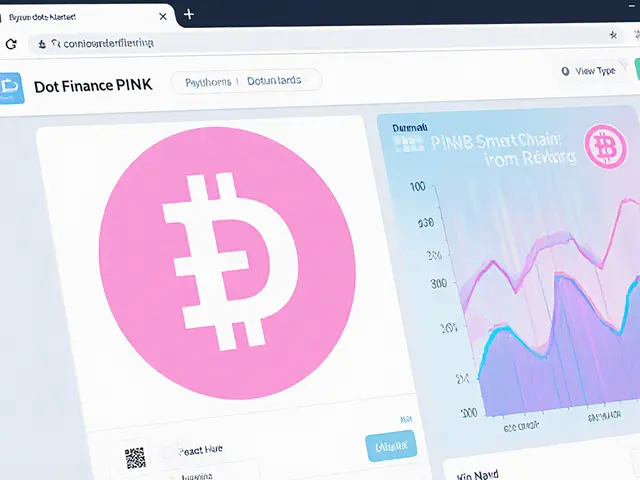WOO X Review: Deep Liquidity, Zero‑Fee Spot Trading, and Pro‑Grade Tools

WOO X Fee Calculator
Standard Fees
0.1% - 0.2% maker/taker fees
Zero-Fee Potential
Stake 1,800 WOO tokens for 0% fees
Savings Analysis
Enter your trading volume and WOO stake to see potential monthly savings.
When you hear the name WOO X is a centralized cryptocurrency exchange that launched in 2021 and targets professional‑grade traders with deep liquidity and advanced tools, you might wonder if it lives up to the hype.
Quick Takeaways
- Zero‑maker & taker fees for spot trades if you stake 1,800 WOO tokens.
- Spot fees range 0.1%‑0.2%; futures fees sit at 0.02%‑0.03%.
- Supports 194 crypto assets and a full suite of derivatives.
- Liquidity depth rivals top‑tier exchanges, keeping slippage low on large orders.
- Security includes 2FA, SSL, regular audits, and a live Proof‑of‑Reserves dashboard.
WOO X review in a nutshell: a solid choice for high‑volume traders who value deep liquidity and customisable interfaces, but the fiat on‑ramp remains limited.
How WOO X Came to Be
The platform started under the name WOOX and rebranded to WOO X on September 19, 2024. It sits under the broader WOO Network is a blockchain‑based ecosystem that offers liquidity‑as‑a‑service and a native utility token, WOO. Registered in the British Virgin Islands, the exchange has been operational since 2020 and markets itself as one of the most liquid venues globally.
Fee Structure & Zero‑Fee Model
WOO X charges a tiered fee schedule:
- Spot trading: 0.1%‑0.2% maker/taker.
- Futures & perpetual contracts: 0.02%‑0.03%.
The standout feature is the zero‑fee tier. Stake 1,800 WOO tokens on the platform and you unlock 0% maker and taker fees for spot trades. For a trader moving $50,000 a day, that can translate into $100‑$200 saved each month.
Liquidity & Order Execution
Liquidity is the heart of WOO X’s value proposition. The exchange aggregates order books from multiple liquidity providers, creating a deep pool that reduces slippage. In practice, even a $250,000 market order on BTC experiences less than 0.02% price impact, according to internal metrics shared by the team.
Order‑type support is extensive:
- Market, Limit, Stop Market, Stop Limit
- One‑Cancels‑Other (OCO), Post‑Only, Reduce‑Only
- Immediate‑or‑Cancel (IOC), Fill‑or‑Kill (FOK)
This arsenal lets traders fine‑tune execution strategies, whether they’re hedging a large position or scalping on tight spreads.

Trading Interface & Advanced Features
The web UI is highly customisable. Drag‑and‑drop widgets let you build a layout that mirrors a professional terminal: multi‑chart windows, integrated order entry forms, depth‑of‑market heatmaps, and real‑time volatility indicators. Mobile apps for iOS and Android echo the same flexibility, albeit with a slimmer widget set.
For algorithmic traders, WOO X provides a robust REST and WebSocket API, supporting order submission, market data streams, and account management. The API rate limits are generous enough for most high‑frequency strategies, and documentation includes sample code in Python, JavaScript, and Go.
Security, Compliance & Custody
Security measures meet industry standards:
- Two‑factor authentication (2FA) via authenticator apps.
- SSL encryption for all web traffic.
- Cold‑storage of >95% user funds, with the remainder in hot wallets for liquidity.
- Monthly third‑party security audits and a live Proof‑of‑Reserves dashboard that audits on‑chain balances.
Regulatory posture is cautious. While the Terms of Service don’t expressly forbid U.S. residents, the platform avoids a direct SEC filing, leaving some ambiguity for American traders. For institutional clients, the exchange partners with custodians like Cactus Custody and Digivault, adding an extra layer of compliance.
How WOO X Stacks Up Against Major Competitors
| Feature | WOO X | Binance | Kraken |
|---|---|---|---|
| Spot Fee (standard) | 0.1%‑0.2% | 0.08%‑0.10% | 0.16%‑0.26% |
| Zero‑Fee Tier | Yes (stake 1,800 WOO) | No | No |
| Supported Assets | 194 cryptos + derivatives | 600+ cryptos | 120+ cryptos |
| Leverage (spot) | Up to 5x | Up to 5x | Up to 5x |
| Liquidity Depth (BTC) | Very high, <$2M depth @ ±0.01% | High, <$5M depth @ ±0.005% | Moderate, <$1M depth @ ±0.03% |
| Fiat On‑Ramp | Limited (crypto only) | Extensive (bank cards, wire) | Moderate (bank transfer, credit) |
| Customer Support | 24/7 live chat + email | 24/7 live chat + ticket | Business hours + ticket |
Pros, Cons & Who Should Use It
Pros
- Zero‑fee spot trading for stakers.
- Exceptional deep liquidity that protects large orders.
- Customisable UI suitable for both beginners (basic layout) and pros (advanced layout).
- Robust API for algorithmic trading.
- Transparent Proof‑of‑Reserves dashboard.
Cons
- Fiat deposits/withdrawals are not supported - you must bring crypto in.
- Regulatory clarity for U.S. users is still a gray area.
- Asset list is smaller than market‑dominant exchanges.
Ideal users are high‑frequency traders, institutional desks, and retail traders who move sizable volumes and want to shave off fees by staking WOO. Casual investors who need simple fiat on‑ramps might look elsewhere.
Final Verdict
WOO X delivers on its promise of professional‑grade trading without the massive price tags you see on some retail‑focused platforms. The zero‑fee model, when you hold enough WOO, can be a real money‑saver, and the deep liquidity ensures your big orders won’t wobble the market. However, the lack of fiat integration means you’ll need another gateway to get cash in and out.
If you’re comfortable holding a modest amount of WOO tokens and you trade frequently, WOO X is a compelling addition to your toolkit. For occasional traders who value fiat convenience above everything, a more mainstream exchange may still be the better fit.

Frequently Asked Questions
Can I trade Bitcoin on WOO X with zero fees?
Yes, if you stake at least 1,800 WOO tokens you unlock 0% maker and taker fees on all spot trades, including Bitcoin.
Does WOO X support fiat deposits?
No, the platform only accepts cryptocurrency deposits and withdrawals. You’ll need an external service to convert fiat to crypto first.
What security measures protect my funds?
WOO X uses two‑factor authentication, SSL encryption, cold‑storage for the majority of assets, regular third‑party audits, and a live Proof‑of‑Reserves dashboard to verify holdings.
Is the exchange regulated in any jurisdiction?
WOO X is registered in the British Virgin Islands. It does not hold a specific license in the U.S. or EU, so regulatory exposure depends on your local laws.
How do I access the API for algorithmic trading?
After creating an account, generate an API key from the dashboard. The key gives you access to REST endpoints for market data and order execution, plus WebSocket streams for real‑time updates.









WOO X’s fee architecture leans heavily on token staking to unlock the zero‑fee tier, which essentially creates a pay‑to‑play model for high‑frequency traders. The maker/taker spread of 0.1‑0.2% is competitive, yet the requirement of 1,800 WOO can be a barrier for smaller accounts. Moreover, the tiered futures fees of 0.02‑0.03% compound the incentive structure, nudging users toward deeper liquidity pools.
One could argue that the very notion of “zero fees” is a paradox, a mirage crafted to lure volume away from more transparent venues. Yet, the underlying economics still hinge on the token’s market valuation, which introduces an implicit cost. If the WOO token’s price fluctuates wildly, the real expense may manifest elsewhere. The platform’s promise of deep liquidity feels like a veneer over a token‑centric revenue model.
Respectfully, the deep‑liquidity claim holds water when you look at the aggregated order books. For traders aiming to execute large blocks without slippage, the multi‑provider mesh is a genuine advantage. Keep leveraging those tools, and you’ll likely see tighter fills across the board.
Sure, the UI looks slick but it’s just another pretty face in a crowded market 🤷♂️
It is incumbent upon any discerning market participant to scrutinize the regulatory posture of an exchange that operates under the British Virgin Islands umbrella. While WOO X touts its Proof‑of‑Reserves dashboard, the lack of a formal U.S. registration presents a non‑trivial compliance risk. Furthermore, the custodial partnership with entities such as Cactus Custody does not absolve end‑users from due diligence obligations. In essence, the platform’s allure is tempered by potential legal ambiguities that merit sober consideration.
Zero‑fee hype is overblown; the real cost is the opportunity loss from staking WOO tokens.
Stay focused on the tools-customizable widgets and API depth can give you a real edge if you invest the time to master them.
From a technical perspective, the API’s generous rate limits and WebSocket reliability are critical for high‑frequency strategies. The order‑type suite-OCO, IOC, FOK-provides the granularity needed for sophisticated execution. Leveraging these features can dramatically reduce latency‑induced slippage.
The “deep liquidity” claim is nothing more than marketing fluff; real‑world order books still show thin depth on many altcoins. The platform’s reliance on token staking is a conflict of interest that skews fee structures. Ultimately, it’s a risky proposition for risk‑averse traders.
Honestly, the drag‑and‑drop dashboard feels like a game changer for day traders who need multiple screens at once. Pair that with the live volatility indicators, and you’ve got a pretty solid setup for monitoring fast‑moving markets. Just make sure your internet connection can keep up!
Let me be crystal clear: the only reason WOO X can advertise zero fees is because they are subsidizing it with the WOO token, which is essentially a hidden tax on the community. This model is unsustainable and will eventually erode user trust. We need transparent pricing, not token‑gated gimmicks.
i kinda like the vibe here the platform seems chill but still got the serious tools for trading keep it simple and enjoy the ride
The metaphor of a “liquidity ocean” is apt, yet we must remember that beneath the surface currents can conceal hidden reefs. WOO X’s proof‑of‑reserves dashboard shines like a lighthouse, guiding traders through murky waters, but the lighthouse is only as trustworthy as the keeper. In navigating these digital tides, balance curiosity with caution, and let data be your compass.
When dissecting the multilayered architecture of WOO X, it becomes evident that the platform strives to carve out a niche that blends institutional-grade depth with retail-friendly accessibility, a synthesis that is rarely achieved in the crowded exchange ecosystem. The first pillar of this endeavor is its aggressive aggregation of liquidity from a plethora of sources, which, in theory, should flatten the order‑book curve and mitigate the dreaded slippage that haunts high‑volume traders. Secondly, the token‑staking mechanism, while certainly a clever lever to incentivize ecosystem participation, also introduces a nuanced economic calculus where traders must weigh the opportunity cost of capital allocation against the allure of zero trading fees. One cannot ignore the sophisticated UI that offers customizable widgets, multi‑chart layouts, and heat‑maps, all of which coalesce to provide a visual tableau that mirrors the control panels of legacy trading floors. Moreover, the API suite, replete with REST and WebSocket endpoints, is meticulously documented, fostering an environment where algorithmic traders can seamlessly integrate and iterate on their strategies. The layered security protocols-2FA, SSL, cold‑storage segregation-form a robust perimeter, yet the lingering ambiguity surrounding regulatory compliance, especially for U.S. residents, remains a subtle undercurrent that could sway risk‑averse participants. In juxtaposing the platform’s fee structure, the 0.1‑0.2% maker/taker spread is modest, but the requirement of 1,800 WOO for fee exemption may act as a gatekeeper, potentially curbing broader adoption. From a liquidity perspective, the claim of sub‑0.02% price impact on sizable BTC orders is impressive, but independent verification would bolster credibility. The inclusion of derivatives, offering futures fees hovering around 0.02‑0.03%, adds another dimension for hedging, yet the lack of a native margin system could be viewed as an oversight. While the Proof‑of‑Reserves dashboard offers a veneer of transparency, the periodicity and audit rigor dictate its true value to the community. The platform’s mobile applications echo the desktop experience, albeit with a trimmed widget set, ensuring traders remain tethered to the market on the go. For institutions, the partnership with custodians like Cactus Custody adds a layer of compliance, but the on‑ramp for fiat deposits still feels underdeveloped, which could impede mainstream influx. In the grand tapestry of crypto exchanges, WOO X presents a compelling, albeit imperfect, proposition that rewards the diligent and capital‑rich while leaving the casual or fee‑sensitive user at a crossroads. Ultimately, the decision to integrate WOO X into one’s trading arsenal should be predicated on a comprehensive risk‑benefit analysis that accounts for liquidity, fee economics, regulatory posture, and the personal appetite for token‑staking commitments.
Whilst many laud WOO X for its purported liquidity depth, a discerning analyst must recognize that true market efficiency cannot be manufactured through token incentives alone; such mechanisms merely camouflage underlying thin order books.
Totally get where you’re coming from-if you dive into the API docs and tinker with the widgets, you’ll see the platform’s real power shines when you tailor it to your own workflow.
Sounds like overhyped marketing fluff.
WOO X certainly brings a solid suite of tools to the table, and its liquidity for major pairs holds up under moderate pressure, but the fiat on‑ramp limitations are something to keep an eye on for newcomers.
Glad you mentioned the Proof‑of‑Reserves dashboard; it’s a reassuring safety net for many users 😊. Still, remember that custodial risk is never zero, so diversify where you can. Keep an eye on the staking requirements if you aim for that zero‑fee sweet spot.
Zero‑fee promises are a classic bait‑and‑switch; the real cost hides in the token economics, and those fees will inevitably reappear as market conditions shift 🤔.
When you consider the intersection of deep‑liquidity engineering and the granular order‑type arsenal, WOO X emerges as a platform that rewards both the analytical mind and the swift executionist. The mix of REST and WebSocket streams empowers developers to craft strategies that can respond in milliseconds, while the drag‑and‑drop UI ensures that even non‑technical traders can visualize market depth with clarity. In essence, the exchange provides a bridge between the algorithmic and the intuitive, a rare synthesis in the crypto sphere.
Overall, the suite of features WOO X offers-customizable dashboards, robust API access, and a solid security framework-makes it a compelling option for both seasoned professionals and ambitious newcomers 🌟. Just be mindful of the staking thresholds and regulatory nuances before committing large capital.